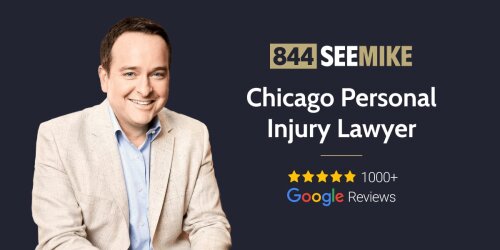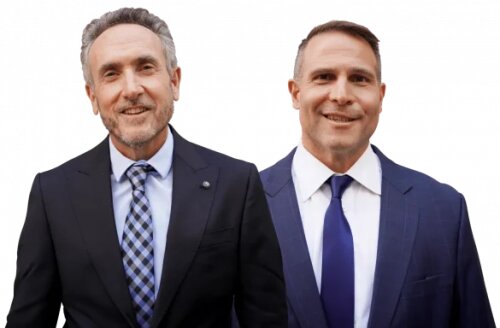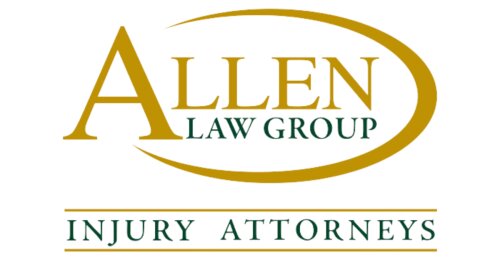Best Drugs & Medical Devices Lawyers in Chicago
Share your needs with us, get contacted by law firms.
Free. Takes 2 min.
List of the best lawyers in Chicago, United States
About Drugs & Medical Devices Law in Chicago, United States
Drugs & Medical Devices Law primarily focuses on regulating the development, marketing, and distribution of drugs and medical devices to ensure the safety of consumers. In Chicago, as in the rest of United States, these laws are enforced by a combination of local, state, and federal rules and regulations, primarily through agencies like the U.S. Food and Drug Administration (FDA).
Why You May Need a Lawyer
People generally need a healthcare lawyer specializing in drugs and medical devices law for a variety of reasons. These can include filing a personal injury lawsuit after experiencing an adverse effect from a drug or device, ensuring regulatory compliance when launching a new drug or device, or defending against claims of harm or false advertising.
Local Laws Overview
Chicago adheres to the Illinois Controlled Substances Act which is in line with the federal Controlled Substances Act. Manufacturers, distributors, and dispensers of controlled substances must register annually with both the state and federal government. Medical devices manufacturers and distributors need to comply with stringent FDA regulations, and any adverse events must be reported under Illinois law.
Frequently Asked Questions
What would constitute a cause for a legal claim relating to a medical device or drug?
If a drug or device is discovered to have dangerous effects or fails in its intended use, causing harm to the user and it can be proven that the manufacturer was aware or should have been aware of these risks, it can constitute grounds for a claim.
What are the penalties for non-compliance with drugs and medical devices laws?
Penalties for non-compliance can range from monetary fines to criminal charges depending on the volume and severity of the offenses. In severe cases, companies may encounter bans on sales or manufacturing.
When should I contact a lawyer?
If you believe you have been harmed by a drug or medical device, it's important to contact a lawyer as soon as possible. Lawyers can help collect valuable evidence and guide you through the complex legal process.
What qualifications should a good drugs and medical devices lawyer have?
An effective lawyer in this field should not only have a thorough understanding of local, state, and federal laws regarding drugs and medical devices, but should also have experience dealing with the FDA, pharmaceutical companies, and medical device manufacturers.
Is there a time limit for filing a lawsuit against a medical device or drug company?
Yes, there are statutes of limitations which put a time limit on when you can file a lawsuit. However, the limit varies depending on the nature of the claim and the state law.
Additional Resources
For further information and support, you may consider visiting the website of the U.S. Food and Drug Administration (FDA) or the Illinois Attorney General's Office. These organizations provide comprehensive resources related to drugs and medical devices law.
Next Steps
If you need legal help, the first step is to gather all relevant documents, such as medical records, evidence of harm, and any communication with the drug or device manufacturer. The next step is to find a competent lawyer who specializes in this field. Additionally, it's important to act quickly to ensure you are within the prescribed statute of limitations.
Lawzana helps you find the best lawyers and law firms in Chicago through a curated and pre-screened list of qualified legal professionals. Our platform offers rankings and detailed profiles of attorneys and law firms, allowing you to compare based on practice areas, including Drugs & Medical Devices, experience, and client feedback.
Each profile includes a description of the firm's areas of practice, client reviews, team members and partners, year of establishment, spoken languages, office locations, contact information, social media presence, and any published articles or resources. Most firms on our platform speak English and are experienced in both local and international legal matters.
Get a quote from top-rated law firms in Chicago, United States — quickly, securely, and without unnecessary hassle.
Disclaimer:
The information provided on this page is for general informational purposes only and does not constitute legal advice. While we strive to ensure the accuracy and relevance of the content, legal information may change over time, and interpretations of the law can vary. You should always consult with a qualified legal professional for advice specific to your situation.
We disclaim all liability for actions taken or not taken based on the content of this page. If you believe any information is incorrect or outdated, please contact us, and we will review and update it where appropriate.











